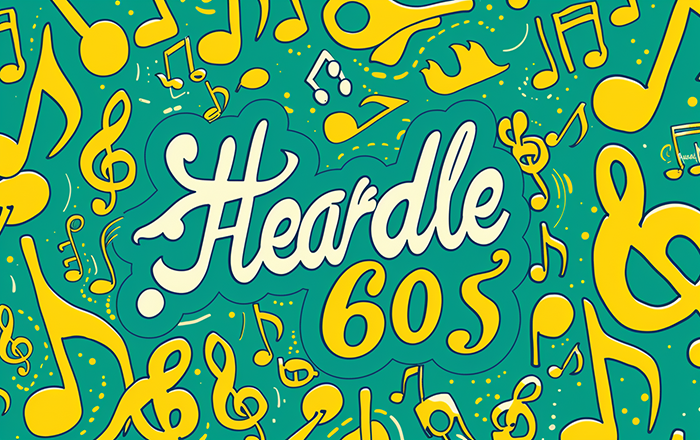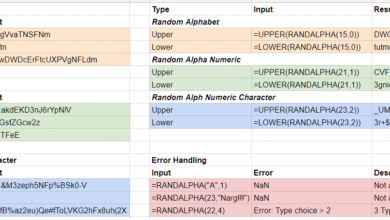Heardle 60s — A Nostalgic Musical Time Machine for the Golden Decade

Introduction: When Music Met Memory
Heardle 60s ,music has always been a reflection of its time—an echo of emotions, culture, and change. Among all the decades that reshaped the soundscape of popular music, the 1960s stand out as a golden era. It was a time when melodies carried messages, rhythms sparked revolutions, and voices became symbols of hope, rebellion, and freedom. Now imagine combining that soulful nostalgia with the thrill of a guessing game. That’s exactly what Heardle 60s offers—an addictive blend of memory, melody, and mastery that transports players straight into the heart of the Swinging Sixties.
Heardle 60s is not just another game. It’s a digital jukebox of timeless hits, a trivia challenge wrapped in melody, and a celebration of an era that changed music forever. Players get a snippet of a song—just a few seconds of its intro—and must guess the title or artist. It sounds simple, but for those who have lived, loved, or even just admired the music of the ’60s, it’s an exhilarating walk down a melody-lined memory lane.
In a world saturated with modern music apps and rhythm-based games, Heardle 60s stands out because it doesn’t just test your knowledge—it revives your connection with a time when music was pure, passionate, and powerful. Whether you’re a baby boomer reliving your youth or a curious Gen Z music buff, Heardle 60s delivers something no playlist can: the feeling of rediscovering a masterpiece you didn’t know you missed.
The Golden Era: Why the 1960s Still Matter in Music

Before diving deeper into what makes Heardle 60s so addictive, it’s important to understand why the 1960s are often called the most influential decade in music history. This was the decade that gave us The Beatles, The Rolling Stones, Bob Dylan, The Supremes, and Jimi Hendrix—all artists who didn’t just sing songs but reshaped entire genres.
The 1960s were an explosion of creativity. Folk met rock, blues merged with psychedelia, and pop evolved into an art form. It was the decade of Woodstock, the British Invasion, and Motown’s soulful rise. Every song told a story, often intertwined with the social and political heartbeat of the time. Heardle 60s taps into this unique musical richness, letting players relive that diversity one track at a time.
What sets the ’60s apart is not just the sound, but the spirit. Each track feels alive—with analog warmth, imperfect beauty, and lyrical honesty that today’s digital perfection often lacks. Heardle 60s celebrates that authenticity by reminding players that music wasn’t just made to entertain; it was meant to move. From the first strum of a guitar to the final harmony, every clue in the game carries a slice of that revolutionary energy.
Moreover, the ’60s bridged generations and genres. You could dance to The Beach Boys in the afternoon and cry to Simon & Garfunkel by night. It was a time when a song could make you question the world—or fall in love with it again. Heardle 60s captures that essence by presenting not just songs but emotions—each guess a reminder of how timeless those tunes really are.
The Game Mechanics: Simple, Smart, and Seductively Addictive
At its core, Heardle 60s follows a straightforward format, but that simplicity is its brilliance. You hear a short clip—maybe a guitar riff, a drum beat, or a haunting vocal—and you have to name the song or artist. Get it wrong, and the clip gets a bit longer. Get it right, and the sweet wave of nostalgia and satisfaction washes over you like a familiar chorus.
This gameplay model makes Heardle 60s universally appealing. It doesn’t require you to be a musician or historian—just a listener with a heart that beats for good music. Each round feels like a friendly challenge between your memory and your ears. For some, it’s an exercise in recognition; for others, it’s a music education in disguise.
What truly sets Heardle 60s apart from other music-based games is its focus. By zeroing in on one decade, it curates a deeply immersive experience. The algorithm doesn’t just throw random songs—it curates iconic, influential, and sometimes underrated gems from the 1960s. You might encounter The Beatles’ “Help!” one moment, followed by The Kinks’ “You Really Got Me” or Aretha Franklin’s “Respect.” Every clip is a time capsule, and every correct answer feels like unlocking a door to the past.
The interface is sleek yet nostalgic, often infused with retro design elements that complement the musical theme. The visuals aren’t overwhelming; instead, they allow the music to shine—the way it should. In a way, Heardle 60s is more than a game; it’s an interactive museum where each note tells a story, and every guess brings history to life.
The Cultural Connection: Bridging Generations Through Sound
What makes Heardle 60s so fascinating isn’t just the nostalgia—it’s how it connects people across generations. Music from the 1960s has a universal charm that transcends age. Grandparents who once danced to Elvis or The Beatles now find themselves playing alongside grandchildren who might only know those songs from TikTok or classic movies.
This intergenerational bond is what gives Heardle 60s its unique cultural resonance. It becomes more than a guessing game; it becomes a conversation starter, a bridge between decades, and a shared experience. It invites listeners young and old to rediscover the songs that shaped modern music—songs that are still covered, sampled, and celebrated today.
Moreover, the game subtly educates. For younger players, Heardle 60s is a crash course in the roots of rock, pop, and soul. For older ones, it’s a gentle reminder of how vibrant those years were. Every track, whether familiar or forgotten, contributes to a deeper appreciation of the artistry that defined the 1960s.
It’s rare for a digital game to evoke such emotional connection. Heardle 60s manages to do it because it respects the music it features. It treats every note as history, every artist as a storyteller, and every player as part of that legacy. It’s nostalgia, education, and entertainment rolled into one beautifully melodic package.
The Emotional Appeal: Nostalgia Reimagined
Nostalgia is a powerful emotion—it’s the art of remembering with affection. Heardle 60s captures that perfectly. When the opening chords of “California Dreamin’” or “House of the Rising Sun” play, it’s not just about guessing the title—it’s about feeling the warmth of a simpler time.
Each song carries personal memories. Perhaps it was a tune you first heard on a vinyl record, played on your father’s old stereo, or sung at a school dance. Heardle 60s taps into those collective and personal emotions, making every game session feel intimate. The joy of recognition, the frustration of near misses, and the satisfaction of nailing a tough track—all blend into an experience that feels human, emotional, and deeply fulfilling.
In an age where algorithms predict what we should listen to next, Heardle 60s flips the script. It invites us to remember what we used to listen to—and why it mattered. It’s not just a game for the ears; it’s therapy for the soul.
Conclusion: Heardle 60s — Where Every Note Tells a Story
Heardle 60s is more than a nostalgic pastime—it’s a tribute to the most transformative decade in music history. It combines the thrill of a guessing game with the depth of a cultural archive. It’s fun, it’s emotional, and it’s educational—all at once.
In a world constantly chasing the next trend, Heardle 60s reminds us of where it all began. It brings back the era when music was honest, daring, and revolutionary. Every correct answer feels like a victory for memory, and every wrong guess becomes a lesson in rediscovery.
Ultimately, Heardle 60s isn’t just about recognizing songs—it’s about reconnecting with a time when melody was magic. Whether you’re reliving the ’60s or discovering it anew, Heardle 60s promises one thing: every note will take you somewhere worth remembering.



